Passionate filmmaker Amir Tavakoli tackles a social topic in Iran
The challenges faced by transgender communities across the world are similar, but can get extreme in conservative patriarchal societies like Iran and India. A film that has been doing the festival rounds and bravely brings out the nuances of this bold subject in Iran is a feature called The Another Self, directed by Iranian director Amir Tavakoli.
The film will be screened at the upcoming Wales International Film Festival (September 15 -17) where it boasts of being nominated in the Best Film and Best Direction categories.
Since June 2021, the film has been very well received in ten film festivals, including KASHISH, one of the largest LGBTQ+ film festivals globally, and has been nominated in three. Amir has been nominated in six festivals for his direction and has won two awards. The film has not been screened publicly in Iran yet. Amir says that the smaller circles that screened the film in Iran were left in tears by the end of the film.

TRANSGENDER LIVES IN IRAN
“I tried to address the reasons for the migration and suicide of trans people in Iran, their lifestyle, the pressure they face from the Iranian society and the laws that the government has set for them,” says Amir.
“They have permission to change their gender, but the people’s views and the inability of society to accept them pushes them towards depression and loneliness. The isolation comes from fighting societal conditioning. There is no sense of psychological security, and people are forced to live in solitude because of the lack of understanding and support from the societies they live in.”
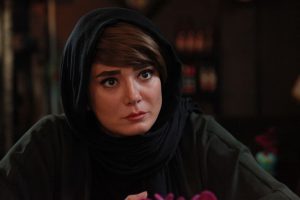 The Another Self is about Kaveh – aka Kimia, born in an Iranian traditional family who wants to change his gender. He obtains all the legal permits from the government, but because of his father’s refusal to allow him to go through the sex change surgery, is forced to leave his father’s house. He lives the life he likes, in a woman’s avatar. Iranian law demands the father to give permission for sex change, and Kaveh’s father refuses to let go of a son.
The Another Self is about Kaveh – aka Kimia, born in an Iranian traditional family who wants to change his gender. He obtains all the legal permits from the government, but because of his father’s refusal to allow him to go through the sex change surgery, is forced to leave his father’s house. He lives the life he likes, in a woman’s avatar. Iranian law demands the father to give permission for sex change, and Kaveh’s father refuses to let go of a son.
Kaveh wears women’s clothes, calls himself Kimia and, with the permission of the government and the support of the elder brother, lives as a female. We see Kimia’s female life and the tremendous emotional turmoil that she goes through as the film gets realistic and intense. The director expertly takes us through the harsh circumstances and feelings of the protagonist, as she commits to the family, while being rejected from home when she returns after twelve long years.
“That she likes to be independent, that she hides her femininity from her family, and her boyishness in her home, brings out the isolation and dilemma she faces. In Iran, the transgender community thinks that the government is bothering them, but in reality, the traditional views and conservative cultural norms are what the community is fighting against,” says Amir.
Amir feels that it is his responsibility as a director to use the medium of films to address issues of social justice and discuss the difficult topics that nobody wants to touch. “My goal as a filmmaker is to look at the problems of society, and I decided to address the silent section of my society,” he says.
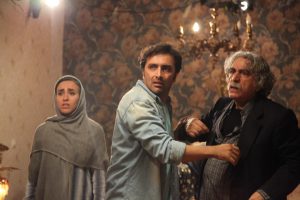 DEMYSTIFYING IRANIAN LAWS
DEMYSTIFYING IRANIAN LAWS
Transgender is a challenging subject, and despite the image that the world has of the Iranian government’s reaction to it, the rules have been made simple. It is a lengthy procedure, but at the end it gives the people the gender identity of their choice, to prevent them from regret, depression, and suicide. The government also renders financial support for gender change surgical procedures, but the father’s permission is required.
According to Amir, the lack of awareness and empathy is really the bigger problem and needs to be addressed. “My goal was to generate awareness and help with the cultural nuances that can hurt a human being and destroy a family,” he explains.
The film had to be edited four times because of government censorship, which left Amir disappointed with the beginning and a feature that is 30 minutes short. “But I am glad that you liked the beginning, along with critics and film lovers across the globe,” smiles Amir.
“I tried to follow all the laws in my country and show the reality. At first, I had the approval of the government, and I made the film legally. As a filmmaker, I wanted to show the real life of these people, create real situations and convey the feeling to the audience.”
ABOUT THE DIRECTOR
Amir Tavakoli is an Iranian writer and director. The 34-year-old director started his tryst with films by chance when he bagged an acting role in a short film during his modelling days. He enjoyed the process to the extent of taking up an acting course, but soon realising that his calling was in directing films where he could create and effectively portray his thoughts using his personal directorial style. He started his career working as an assistant director for movies and television.
He made several short films and chose drama as a genre to portray hard-hitting social issues. Until a decade ago, Iranian films played a colourful role in the life of Iranians, but Amir chooses topics that strike a chord with the audience.
“Filmmaking means challenges and I find this the charm of this work. The biggest challenge is to be able to create the right feelings and steer the actors and the crew towards my vision. The Another Self is my first feature and naturally very close to my heart,” say Amir. “I’d like to thank Ali Karmi and Hamid Bazari for being by my side during every moment of making the film and after that.”
“I would like to be remembered as an influential filmmaker for my country and the world community. I want to win the awards in five prestigious festivals and then an Oscar. I am so happy that critics have a positive opinion towards the film, and it had some good critics and I owe it to our hardworking and empathetic group,” says Amir with excitement.
The screenplay is written by Parsa Hosseini. Amir acknowledges the efforts of his cinematographer, Mehdi Afshar, who endured a lot of pressure to deliver Amir’s filmmaking style. “It was very difficult to film this work,” he confesses. “I am eternally grateful to Mehdi for his work.”
Produced by Mahdi Mahmoud Aghdam, and written by Parsa Hosseini, the film casts the popular and renowned actor Mina Vahid, who won the best actor award at the Artlesia Festival in Italy last year. Mina, the protagonist, was chosen for her physical form and appearance to resemble a man.
The young filmmaker is already working on his next feature, that will bring out the abuse of deepfake, and how it is being used to take revenge and destroy reputation and lives. It is being produced by one of the leading film producers of Iran. The film will hit the floor in a couple of months.
Smita is a multi-cultural freelance journalist, writer, and filmmaker based out of the US, London, Hong Kong, and India. Global Indian Stories is her brain-child. Created to chronicle diaspora stories written by Indians of all age groups, from different walks of life across the globe, Smita makes sure that the platform remains inclusive and positive.

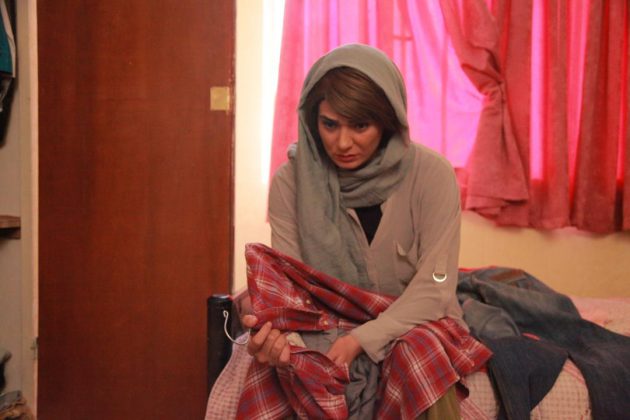
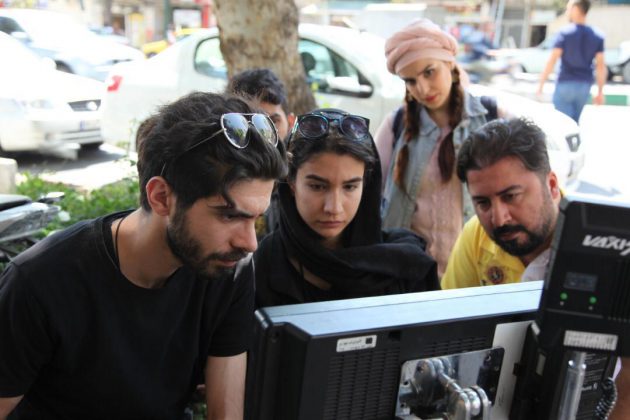
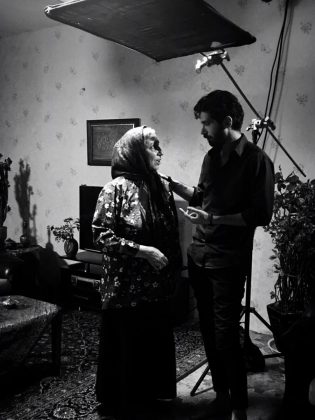
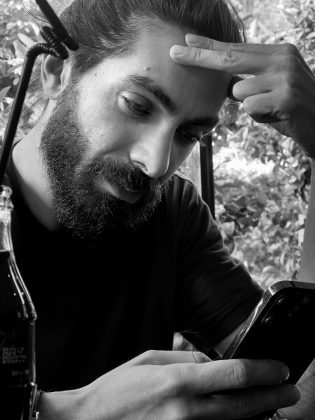
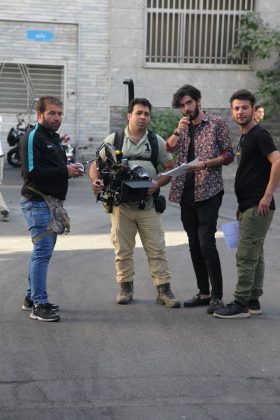
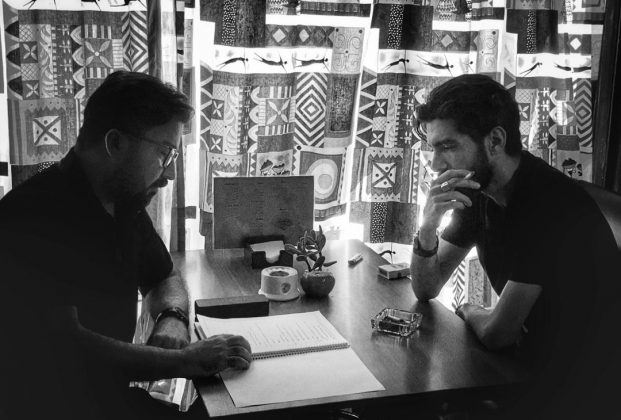

![Powerful Pride documentary Legendary Children [All Of Them Queer] streaming very soon](https://globalindianstories.org/wp-content/uploads/2025/06/Legendary-streaming-release-featured-238x178.jpg)



![Powerful Pride documentary Legendary Children [All Of Them Queer] streaming very soon](https://globalindianstories.org/wp-content/uploads/2025/06/Legendary-streaming-release-featured-100x75.jpg)

